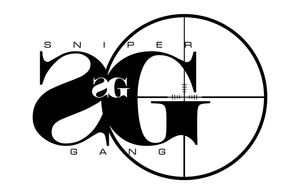New York Times: Kodak Black’s ‘Lil B.I.G. Pac’ Wrestles With Hard Choices
By Common Crew Clothing

Kodak Black, all of 19 years old, works fast. His strong new mixtape, “Lil B.I.G. Pac,” is his fourth, but it arrives an inopportune moment: Kodak Black is in jail, the latest chapter in a string of legal struggles that have pockmarked his otherwise rapid ascent.
In April, he was arrested on weapon and drug charges after leading police officers on a chase after the authorities said they had observed a passenger in his car engaging in a drug transaction. And last month, he had his bond stemming from a 2015 arrest on robbery and false imprisonment charges, among others, revoked.
This talented young Pompano Beach, Fla., rapper, who’s now signed to Atlantic Records, is at a crossroads. “I’m too street for the industry,” he raps, resignedly, on “Too Many Years,” from “Lil B.I.G. Pac,” but he concludes, “I think that’s where I need to be.”
Kodak Black may be an unlikely savior for a hip-hop industry that has lately been preoccupied with melodic-minded Drake clones. Instead, he’s an old-fashioned literalist and represents the perennial power of grit even in a time that’s squeaky clean.
From every angle, “Lil B.I.G. Pac” — his best release since “Heart of the Projects,” from 2014 — is about his internal tug of war. It’s a vivid album about how the appeal of street life is just as powerful, if not more so, than the appeal of a shot at real fame.
There’s bravado here, like on the petulant “Today,” in which he gripes about wishing he was free of obligations and the spotlight: “I don’t wanna go in front of no crowd/Today, I wanna tote my .40-cal.” But generally, that bluster is cut through with stark reckoning about his personal choices, and also the circumstances that led him to those choices. “I’m not a bad kid, I just didn’t have no guidance,” he raps on “Can I.”
Several of the most effective songs here are the most tragic, like “Gave It All I Got,” on which Kodak Black, over a melancholy horn riff, laments how those close to him let him down while he was last in jail. And “Purp,” which moves with a slow-seeping shimmer, is a catalog of self-flagellation, and also a self-warning: “I’m trying to keep everybody happy but I just end up hurt/and Lord knows that I’m blessed but sometimes I feel cursed.”

The rappers namechecked in the title aren’t his heroes. It’s notable that the two guest rappers on the mixtape are a pair of Southern elders (both of whom have faced ample legal trouble, too): Gucci Mane, the sly Atlanta rapper embedded into the DNA of almost every Southern rapper under 25, and Boosie Badazz, the Louisiana rapper who for years has been nailing the blend of tough talk and pathos Kodak Black excels at.
Kodak Black is a sleepy-sounding vocalist who swallows his words, a tactic that obscures his enthusiasm for twisty assonance. One joy of listening to him is when he leans hard on a particular vowel sound and returns to it time and again in the space of a few bars.
That was a trick he employed well on “SKRT,” the 2014 song that Drake popularized last year when he was filmed dancing to it on a private plane. That gave Kodak Black’s career a quick boost, and “Lil B.I.G. Pac” comes as he has something approaching a breakout hit: “Lockjaw,” a collaboration with French Montana, which appeared on French Montana’s “Wave Gods” mixtape and earlier this month got a lush video filmed in Port-au-Prince (Kodak Black is of Haitian descent) and Broward County.
The tension between Kodak Black as he once was and Kodak Black as he might be is on display here, too. Sometimes he’s staring hard at the camera; sometimes he’s scrunching up into himself. He’s confident but unglamorous, unflustered by the sling his left arm rests in.
But even though that clip was filmed just a few weeks ago, it already feels like a relic. Kodak Black is in jail again, and songs on “Lil B.I.G. Pac” that he wrote about his last stint behind bars feel like fresh stings. Take the poignant “Letter,” which is framed as a note sent to him behind bars by a friend who has just been released. It’s full of love and hope, a beautiful evocation of kinship under tough circumstances that recalls Nas’s essential “One Love.”
And then there’s “Young Prodigy,” in which Kodak Black wrote about learning from his mistakes, and about the need to scuttle the old self in favor of new hope:
Went to jail and I came back
Went through hell and I came back
Was in my cell, recreating myself
I died and then I came back


0 comments